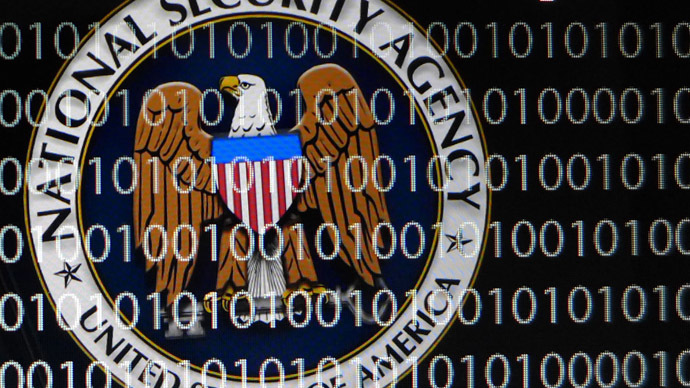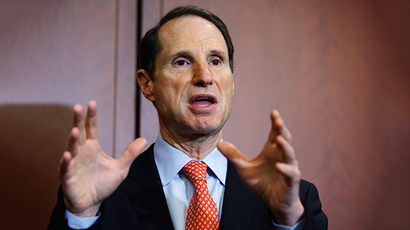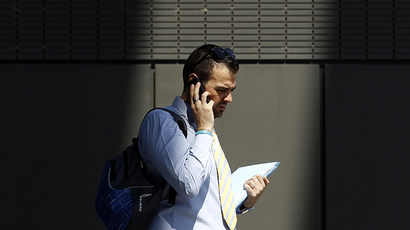Telecoms could be forced to collect even more metadata under Obama’s NSA overhaul

An effort from the White House to revamp the rules that govern how the National Security Agency goes about getting telephone data may actually force service providers to start logging more records that they do now, a new report suggests.
Government and industry sources in the United States say that the NSA has been collecting only a fraction of the so-called metadata it’s allowed to acquire under the Foreign Intelligence Surveillance Act, Reuters reported this week, and that the systems used by telecommunication companies to create those records rarely capture all the details they could be.
Last month, US President Barack Obama said his administration had settled on a plan that, if approved by Congress, would no longer allow the NSA to regularly collect the metadata pertaining to millions of Americans without first getting authorization on an individual basis. Currently, Section 215 of the US PATRIOT Act is interpreted in a way that allows the NSA to compel telecoms for metadata without making a case against intelligence targets, but Pres. Obama’s new proposal would make it so that the telephone companies would create and keep those records for themselves unless they’re specifically requested by intel officials and approved of by the FISA court.
According to Reuters’ sources, however, telecoms aren’t recording as much metadata as many Americans think. Although secret documents leaked to the media last year by former NSA contractor Edward Snowden revealed that the NSA was compelling telecoms for those call records, sources say telephone service providers seldom log all the data that the government wants them to.
An industry source told Reuters on condition of anonymity that the systems used by telecoms to log records are “complex,” but added, “I doubt there are companies out there that have a nice, neat, single database that can tell you how long records are kept universally.”
Another source identified only as being a former senior US official also suggested to Reuters that fewer records are being kept on account of the growing popularity of unlimited-calling plans offered by telecoms, the likes of which often don’t involve billing customers for individual calls. Without individual calls being billed, some companies may not be logging conversation-specific metadata.
"The change in the nature of billing data means that there's a lot less such data than there used to be," Stewart Baker, a former senior official at both the NSA and the Department of Homeland Security, told Reuters.
Both the industry source and the unnamed former government official, the Reuters report continued, said the NSA has been collecting only 25 percent to one-third of the total US metadata that it is authorized to collect. Obama’s new plan would relinquish the agency from holding onto any of that information, but would instead require the telecoms to make more detailed logs.
"It strips from us the ability to make business decisions as the technology evolves," the industry source told Reuters journalists Mark Hosenball and Alina Selyukh. "It would cause us to continue to collect stuff that we don't need,” they said.
Currently, the US Federal Communications Commission, or FCC, requires telecoms to retain for 18 months the records on “toll,” or long-distance calls, Reuters reported.
“Will the reconstituted program retain equal efficiency in acquiring and analyzing the data as the current program?” Carrie Cordero, the director of National Security Studies at Georgetown University Law Center, asked on the Lawfareblog this week. “This is a big question, with a very unclear answer from where we sit today. Currently, it is impossible to tell, but also hard to imagine that it will. What we do know is that communications companies are in the business of providing communications services. And while they will respond to lawful legal process, they are not inherently suited to perform, nor are they interested in dramatically changing their business model to facilitate, intelligence collection and analysis.”
Last week, the executive vice president for public policy at Verizon wrote on the telecom’s own blog that the company will of course compel with future requests for call records from the government, but added that he believed “companies should not be required to create, analyze or retain records for reasons other than business purposes.”
Under the White House’s plan, telecoms “would be compelled by court order to provide technical assistance to ensure that the records can be queried and that results are transmitted to the government in a usable format and in a timely manner.” Pres. Obama has asked Congress to draft and approve legislation that adheres to that provision and others announced last month by his administration.














